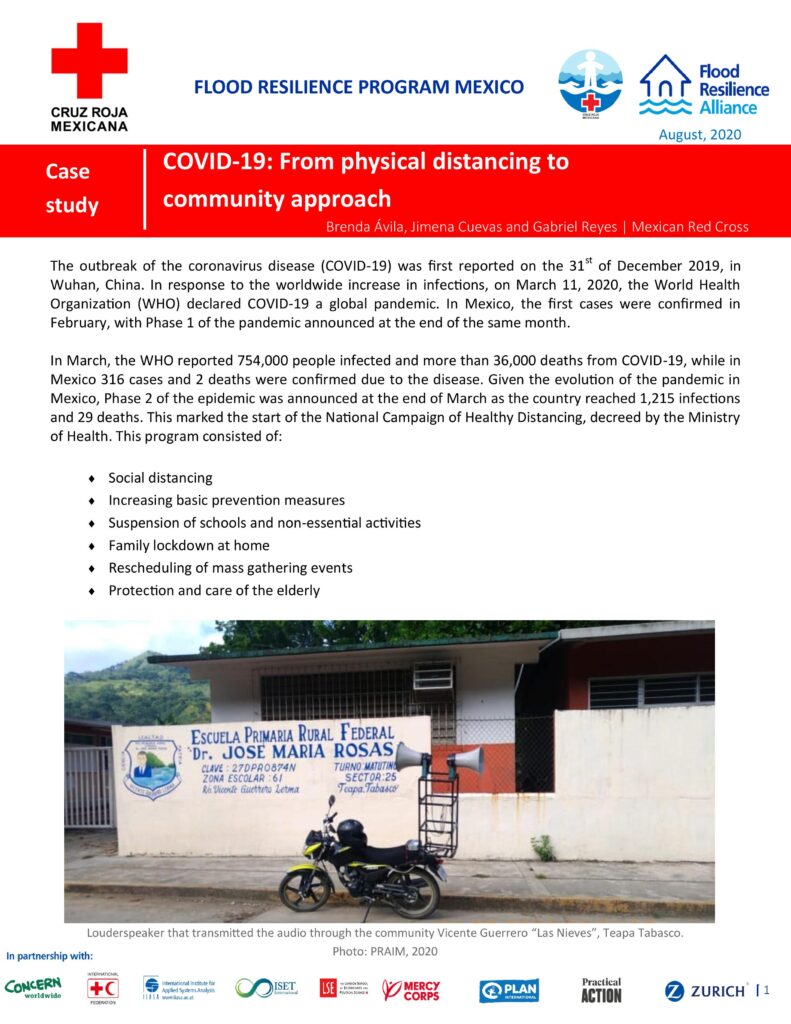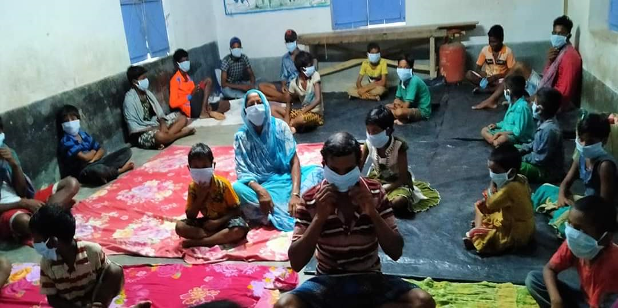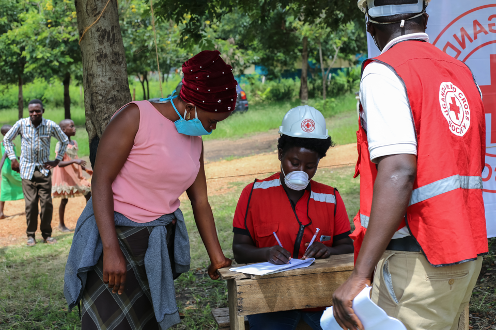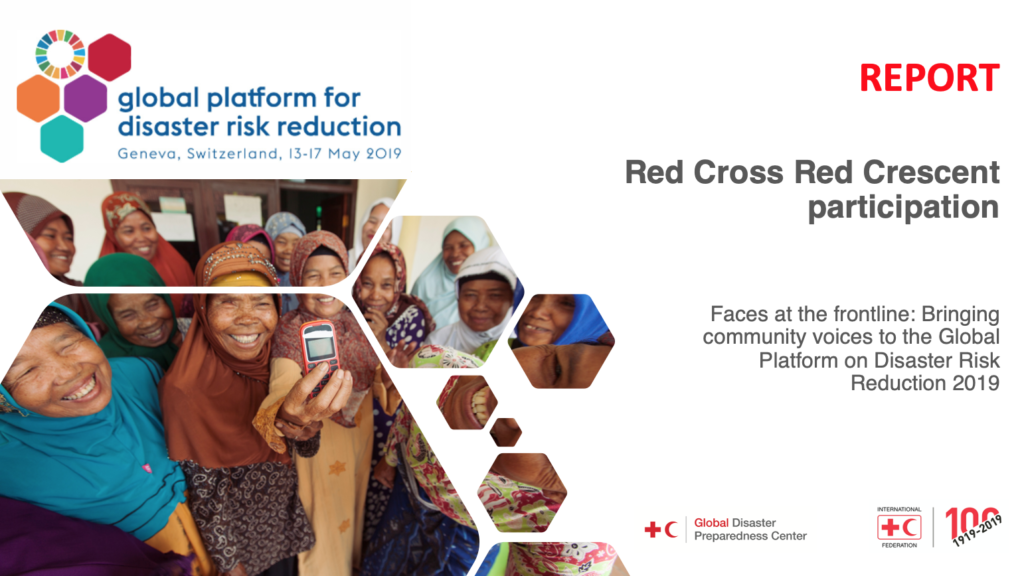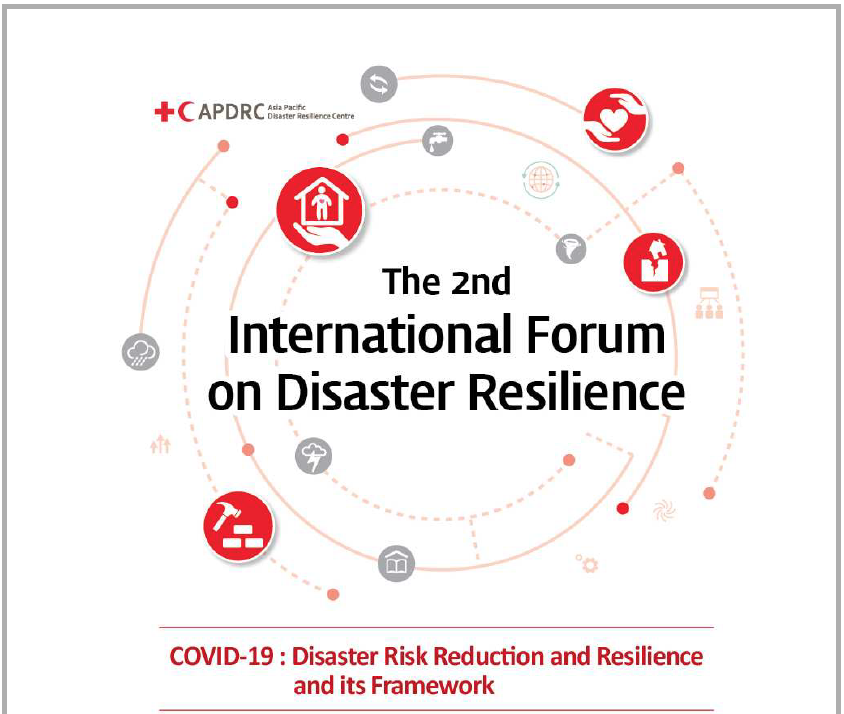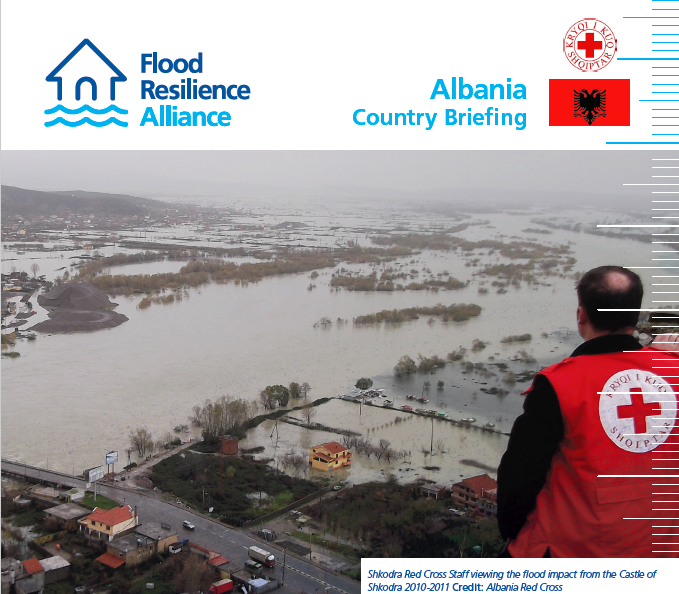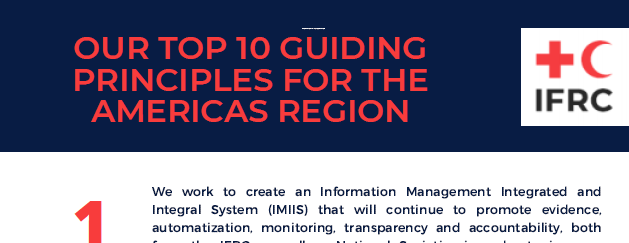COVID-19: From physical distancing to community approach
Facing the Covid-19 pandemic and lockdowns, the Flood Resilience Program of the Mexican Red Cross that is implemented as part of the Zurich Flood Resilience Alliance (ZFRA) had to stop all community and face-to-face activities. Instead, the flood resilience team developed and implemented the “Covid-19 Community Awareness Strategy”. This case study describes how the team […]
COVID-19: From physical distancing to community approach Read More »

